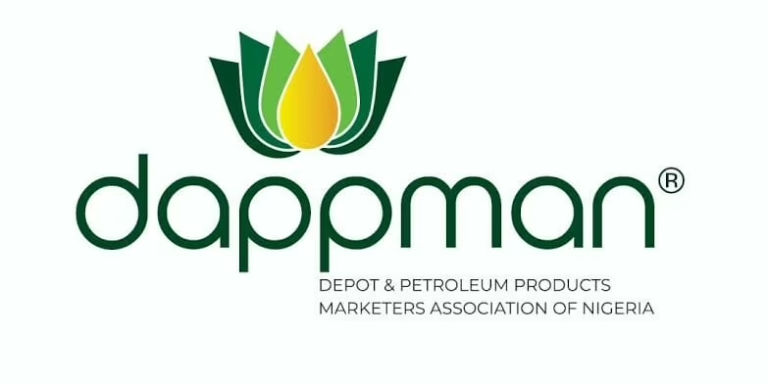The Depot and Petroleum Product Marketers Association of Nigeria (DAPPMAN) has urged the Dangote Refinery to implement an open-access supply framework, ensuring marketers can obtain petroleum products at fair and competitive rates.
During an interview on Channels Television’s ‘The Morning Brief’ on Wednesday, DAPPMAN’s representative, Ikem Ohia, refuted any notion of conflict with the refinery. He emphasized that the association’s goal is to foster cooperation that guarantees a reliable fuel supply throughout Nigeria.
“Our primary concern is consistent availability of petroleum products at affordable prices, eliminating fuel shortages and long queues for Nigerians,” Ohia stated.
While acknowledging Dangote Refinery’s rise as a leading fuel supplier, he expressed reservations about product accessibility and pricing structures.
“The critical questions are: what prices are being offered, and do marketers genuinely have the opportunity to purchase from the refinery?” he questioned.
Ohia highlighted that DAPPMAN members have, over the past twenty years, developed an extensive distribution network with depots strategically positioned in Calabar, Port Harcourt, Warri, and Lagos. He encouraged Dangote Refinery to utilize these existing infrastructures to enhance fuel availability nationwide.
“We are requesting that Dangote Refinery leverage these established depots to effectively meet the fuel demands of Nigerians,” he explained.
Addressing rumors that marketers are seeking subsidies, Ohia clarified that their concerns are strictly commercial.
“We are entrepreneurs, and so is Dangote. We are not asking for subsidies; rather, we are engaged in ongoing negotiations to find a mutually beneficial pricing solution,” he added.
He further noted that most international refineries operate using two main distribution models: bulk wholesale deliveries via vessels and retail sales at ex-gantry points. He cautioned that relying solely on retail gantry sales is insufficient to satisfy national fuel requirements.
“Typically, refineries prioritize bulk off-take arrangements with partners capable of lifting large volumes to maintain continuous production. Sole dependence on retail gantry sales cannot fulfill the country’s demand,” he warned.
Ohia revealed that DAPPMAN had approached Dangote Refinery prior to its production launch to discuss bulk supply partnerships. However, the refinery opted to collaborate with a limited number of selected partners, restricting broader marketer access.
“Dangote prefers to engage a few chosen partners, including one or two from our membership. We believe that an open, inclusive system rather than a restrictive one will better serve Nigeria’s interests,” he asserted.
He added that many DAPPMAN members operate retail networks comprising up to 300 fuel stations each, which could effectively serve the nation if assured of bulk supply.
“The data is clear: current supply volumes fall short of market demand. Bulk deliveries to depots are essential to adequately serve Nigerians,” he emphasized.
This statement comes amid escalating debates over petroleum product distribution, particularly following Dangote’s acquisition of 4,000 CNG-powered trucks intended for nationwide fuel delivery. Some marketers have criticized this move as indicative of monopolistic practices within the downstream sector.
According to LEADERSHIP, tensions heightened on Tuesday when billionaire businessman and close associate of Aliko Dangote, Femi Otedola, called on DAPPMAN to evolve and embrace the shifting dynamics of the oil and gas industry. Speaking on the same television program, Otedola suggested that marketers consider purchasing the Port Harcourt Refinery rather than opposing progress.
Adding to the discourse, Billy Gilly-Harris, President of the Petroleum Products Retail Outlets Owners Association of Nigeria (PETROAN), contended that Dangote’s fleet of 4,000 trucks alone is insufficient to ensure a stable fuel supply across the country.

















